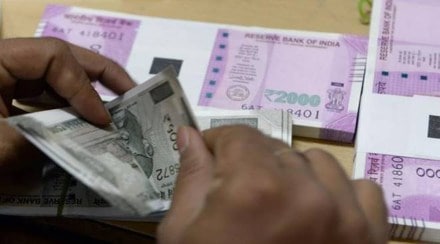By Manish M. Suvarna
Yields on short-term debt instruments maturing in less than one year rose sharply by 10-15 basis points after the Reserve Bank of India revised the amounts for the issuances of Treasury bills (T-Bill) for the last month of the fiscal year. The amount has been revised by the Reserve Bank of India (RBI) after reviewing cash position of the central government.
Short-term debt instruments includes T-Bill, commercial papers (CP), and certificates of deposit (CD). Yields on T-Bills maturing in 91-day has risen 5 basis points, 182-day and 364-day by 10 and 11 basis points, respectively. Similarly, yields on CP jumped 10-15 basis points and with this, the papers issued by manufacturing companies maturing in three-month are trading in the range of 4.10-4.15%, and those on non-banking finance companies are hovering around 4.40-4.50%.
“After RBI increased T-Bills amount, short-term yields have moved up. Increase in oil prices due to Russian-led geopolitical concerns and further increase in inflation has also created cautious sentiments,” said Marzban Irani, CIO – Fixed Income, LIC Mutual Fund Asset Management.
The RBI, on February 25, has increased the amount to raise through short-term papers such as T-Bills after reviewing the cash position of the government. The Centre will raise Rs 7,000 crore through the 91-day T-bill, Rs 15,000 crore each through the 182-day and 364-day T-Bills, according to the revised calendar, starting March 9.
According to the release, the central bank in consultation with the government will continue to have the flexibility to modify the notified amount and timing for auction of T-Bill depending upon the requirements, evolving market conditions and other relevant factors.
Investors do not expect yields on long-term bonds to rise due to less supply of bonds from the government after cancellation of two weekly bond auction. Usually, long-term bond yields get reacted due to global events such as rising crude oil prices, US Treasury yields, among others, and increase in interest rate by the central bank. “Additional borrowing in T-Bill may not impact 10-year yield,” Irani added.
Market participants expect yields on these instruments are expected to rise further in this month as liquidity is likely to reduce from the system on account of advance tax payments and redemption of mutual fund for the quarter-end.
